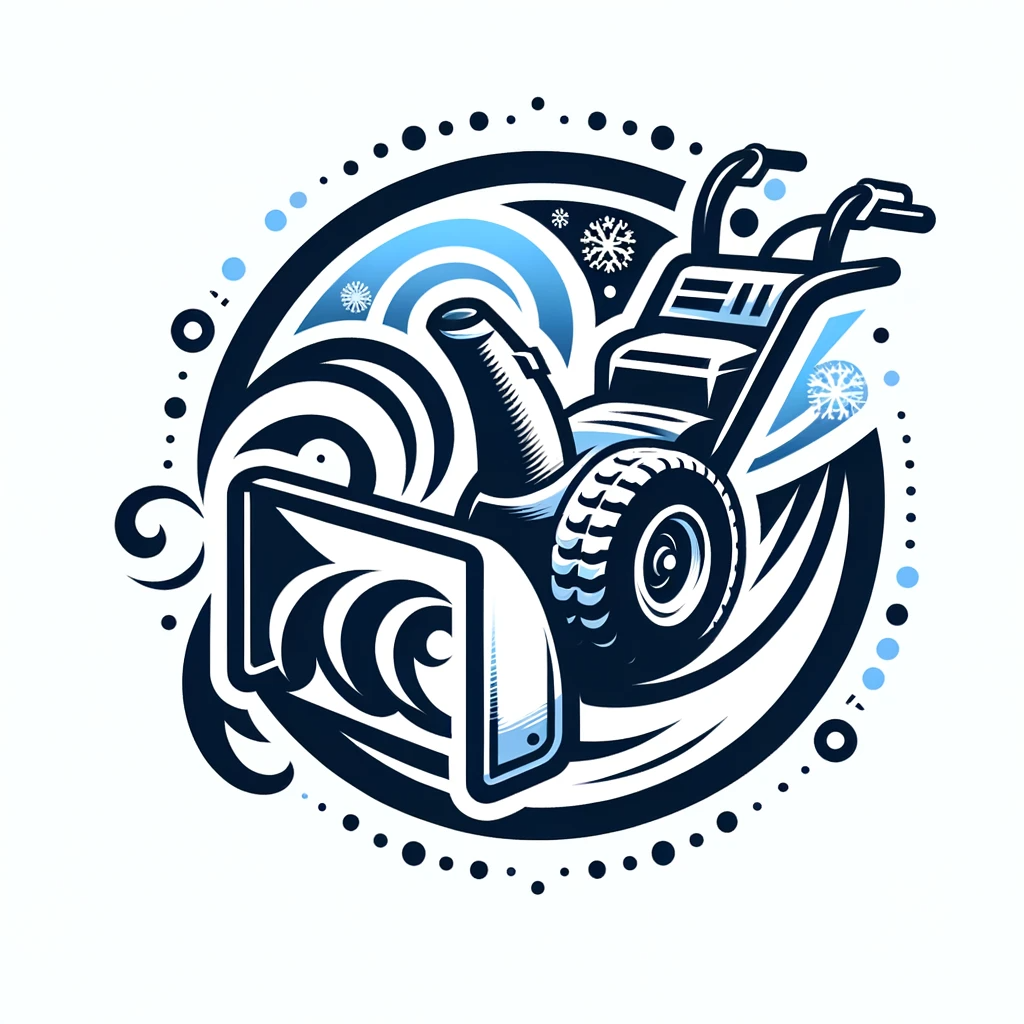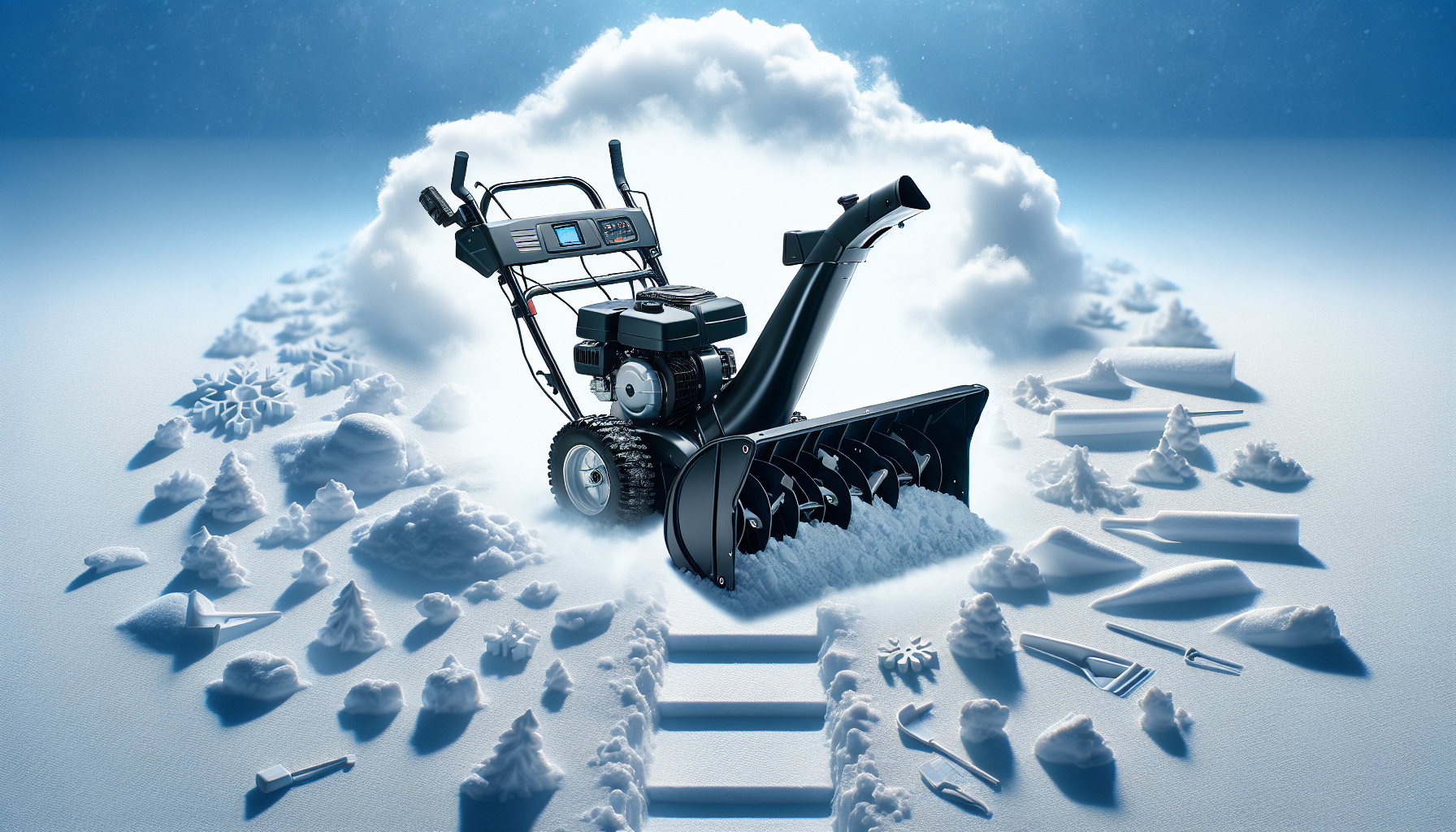So, you find yourself facing another winter season filled with snow-covered sidewalks and driveways. The thought of shoveling snow day after day is exhausting, and you’ve finally decided it’s time to invest in a snow blower. But now comes the question: how much should you really spend on a snow blower? In this article, we’ll explore the factors that influence the cost of snow blowers and help you determine the best fit for your budget and snow removal needs. Whether you’re a seasoned snow blower buyer or a first-timer, we’ve got you covered!
Factors to Consider
Size of the Driveway or Walkway
When determining how much you should spend on a snow blower, the size of your driveway or walkway plays a crucial role. If you have a smaller area to clear, such as a short driveway or a small path, you may be able to get away with a less expensive and less powerful snow blower. On the other hand, if you have a long driveway or a larger area to clear, investing in a more robust snow blower will ensure efficient and effective snow removal.
Snowfall Amount and Type
Another factor to consider is the amount and type of snowfall you typically experience in your area. Some regions receive heavier and wetter snow, while others may have lighter and drier snowfall. If you live in an area that receives heavy snowfall, you will likely need a snow blower with more power and capabilities to handle the challenging conditions. However, if you live in an area with lighter snowfall, a less powerful snow blower may suffice.
Frequency of Use
The frequency of use is essential to determine the right snow blower to fit your needs. If you live in an area where snowfall is a regular occurrence throughout the winter season, investing in a higher-quality snow blower will ensure it can handle the consistent use. However, if you only experience occasional snowfall or have a second home that you visit infrequently during the winter, a more budget-friendly option may be sufficient.
Type of Snow Blower
There are different types of snow blowers available on the market, including single-stage, two-stage, and three-stage snow blowers. Each type varies in terms of power, handling, and performance. Single-stage snow blowers are suitable for light snow and smaller areas, while two-stage and three-stage snow blowers are better equipped to handle heavier and larger snow removal tasks. The type of snow blower you need will depend on the specific requirements of your property.
Additional Features
Consider any additional features you may desire in a snow blower. Some models come with features like electric start, heated handgrips, LED headlights, power steering, and remote chute controls. While these features may increase the price, they can greatly enhance the convenience and user experience, especially during harsh winter conditions.
Budget Range
Entry-Level Snow Blowers
If you have a smaller budget or have simple snow removal needs, entry-level snow blowers can be a suitable option. These basic models often have less power and fewer features but still get the job done for smaller areas and lighter snowfall. Entry-level snow blowers are typically more affordable and are a good starting point for those who are on a tight budget or only need occasional snow removal.
Mid-Range Snow Blowers
Mid-range snow blowers offer a balance between price and performance. They usually have more power and additional features compared to entry-level models. These snow blowers are ideal for those with medium-sized driveways or walkways and regular snowfall. Mid-range snow blowers provide more versatility and durability, making them a worthwhile investment if you require more robust snow removal capabilities.
High-End Snow Blowers
For those with larger properties, heavy snowfall, or professional use, high-end snow blowers are worth considering. These top-of-the-line models are built to handle the toughest snow removal tasks with ease. They often come with advanced features, higher power ratings, and larger clearing widths. While high-end snow blowers may come with a higher price tag, they offer superior performance, durability, and reliability, making them a long-term investment for those who require heavy-duty snow clearing.
Cost vs. Quality
Durability and Lifespan
When contemplating how much to spend on a snow blower, it’s crucial to consider the durability and lifespan of the machine. Investing in a higher-quality snow blower may cost more initially, but it can save you money in the long run by lasting for many winters without the need for frequent repairs or replacement. Look for snow blowers constructed from durable materials, such as heavy-duty steel or reinforced plastic, and read customer reviews to gauge their overall longevity.
Performance and Power
The performance and power of a snow blower are essential factors to evaluate when deciding on your budget. Higher-priced snow blowers often feature more powerful engines, wider clearing widths, and greater throwing distances. These enhanced capabilities allow them to tackle heavier snowfalls and larger areas more efficiently. A snow blower with sufficient power will help you clear snow quickly and effortlessly, ensuring your driveway or walkway remains safe and snow-free.
Warranty Coverage
When considering the cost versus quality, pay attention to the warranty coverage offered by different snow blower models. A longer warranty period can indicate the manufacturer’s confidence in the product’s durability and reliability. While higher-end snow blowers may come with more comprehensive warranty coverage, it’s important to review the details of each warranty to understand what it covers and for how long. A solid warranty can provide peace of mind and help protect your investment.
Maintenance and Operating Costs
Fuel or Power Source
The type of fuel or power source required by the snow blower can affect both its upfront cost and ongoing operating expenses. Traditional gas-powered snow blowers generally cost less initially, but they require regular maintenance and the purchase of gasoline. On the other hand, electric snow blowers may have a higher initial cost but can be more affordable to operate since they don’t require gasoline, have lower maintenance needs, and produce no emissions. Consider both the upfront cost and long-term operating expenses when deciding on the right snow blower for you.
Maintenance and Repairs
Another aspect to consider when budgeting for a snow blower is the cost of maintenance and potential repairs. Gas-powered snow blowers typically require more maintenance, including oil changes, spark plug replacements, and fuel system maintenance. These maintenance tasks can add up over time. Electric snow blowers generally require less maintenance, but repairs for either type of snow blower can be costly. It is important to budget for routine maintenance and be prepared for any unexpected repair costs that may arise.
Long-Term Investment Considerations
Resale Value
While it may not be a primary consideration when purchasing a snow blower, the potential resale value should still be taken into account. Higher-quality snow blowers and reputable brands often hold their value better in the resale market, should you decide to upgrade or sell your snow blower in the future. Investing in a snow blower with good resale value can help offset the initial cost and make it a more practical investment.
Climate Change and Future Winter Conditions
As climate change continues to affect our weather patterns, it is important to consider the potential impact on future winter conditions in your area. If your region is experiencing milder winters with less snowfall, it may be worth adjusting your budget and considering a less expensive snow blower. On the other hand, if your area is experiencing more severe winters with heavier snowfall, investing in a higher-quality snow blower may be necessary to effectively maintain your property.
In conclusion, when determining how much to spend on a snow blower, it is important to consider several factors. The size of your driveway or walkway, the amount and type of snowfall you typically receive, the frequency of use, and the specific features and type of snow blower you require all play a role in determining your budget. Additionally, considering the cost versus quality by evaluating the durability, performance, and warranty coverage is crucial. Be sure to also consider the maintenance and operating costs, including the fuel or power source and potential maintenance and repair expenses. Lastly, keep in mind the long-term investment considerations such as resale value and the potential impact of climate change on future winter conditions. By carefully considering these factors, you can make an informed decision and find the ideal snow blower that meets your needs and fits your budget. Stay prepared for winter with a reliable snow blower and keep your driveways and walkways safe and snow-free.


